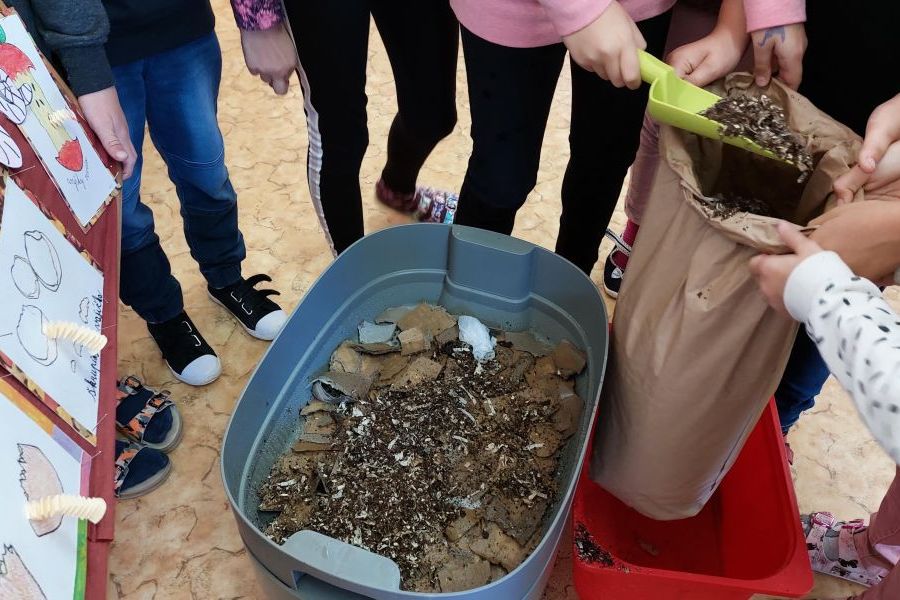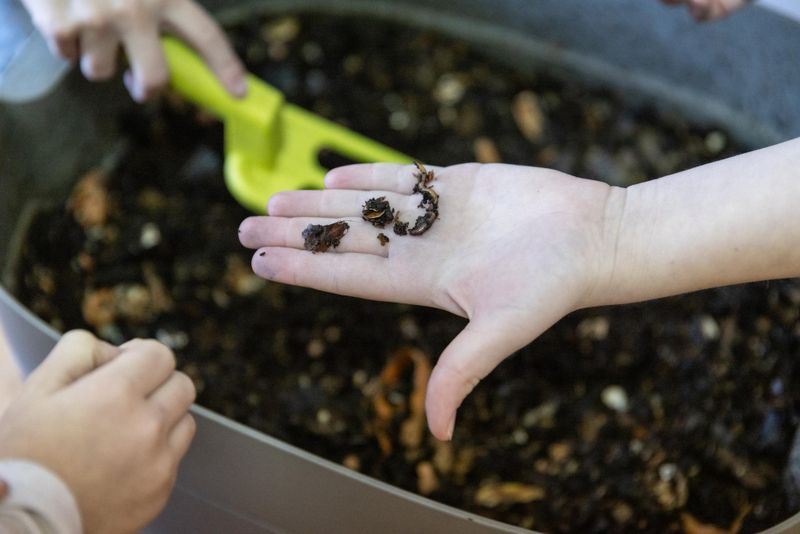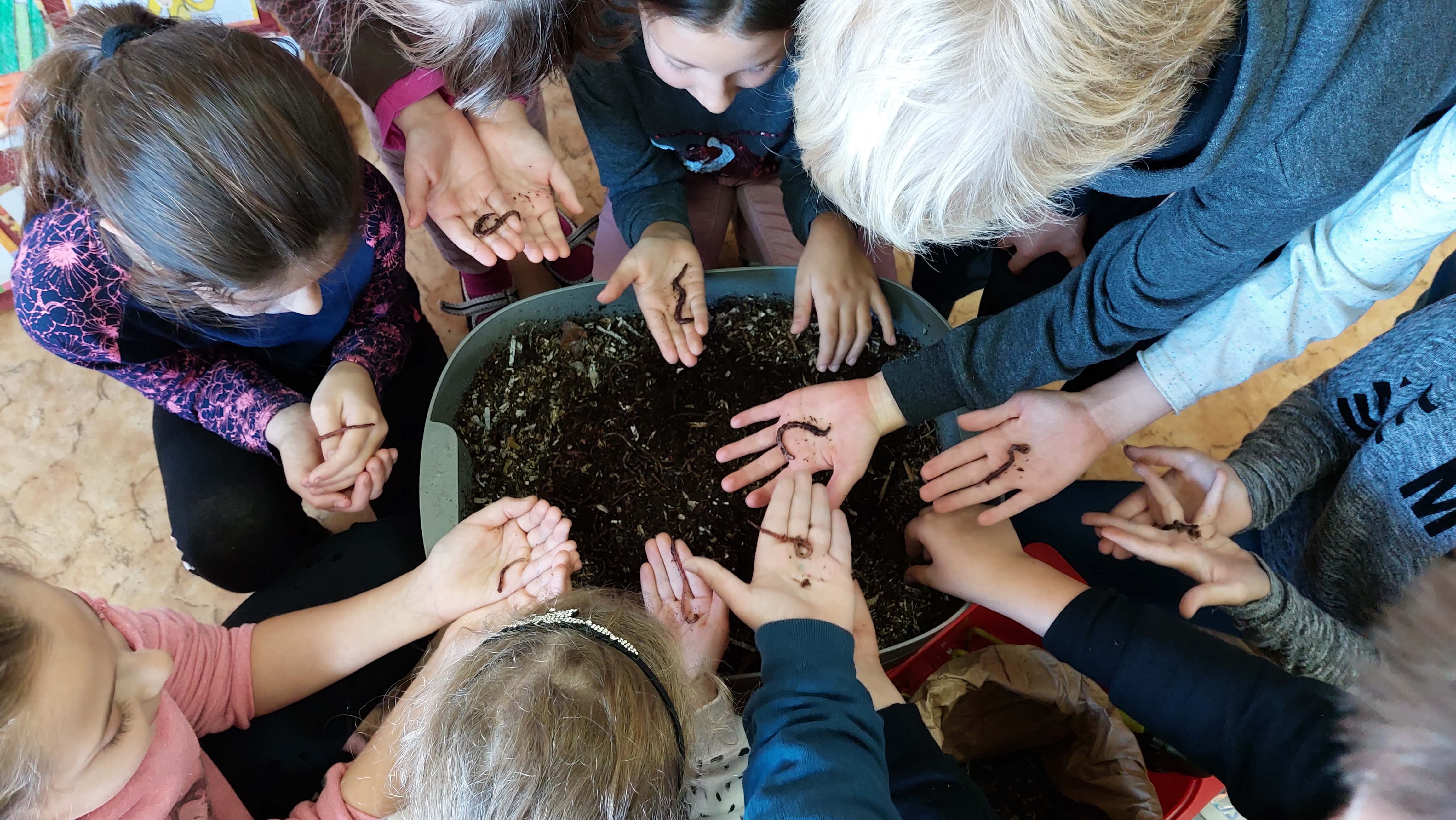
The problem
Currently, pupils do not have enough knowledge about the treatment of food scraps or other suitable compostable waste. They have no knowledge of how to process bio-waste into quality fertiliser thanks to earthworms in vermicomposters.
The solution we used
We placed a vermicomposter with earthworms in the classroom. The children have the opportunity to learn a lot of information and interesting facts about the world of these clever animals. They gain experience in processing kitchen bio-waste through the earthworms that feed them. They learn about the unique benefits that such vermicomposting brings. We have provided them with instructions to build their own vermicomposter, which they can also have at home to explore this miraculous micro-world and watch how it transforms bio-waste into quality fertilizer.


Implementation
The aim of the project was to encourage pupils to sort waste and compost directly at school. In this way, they have the opportunity to gain unique environmental knowledge about the processing of food scraps.
- In the first stage we prepared an earthworm house - a vermicomposter.
- In the second stage, the pupils taught their classmates about the importance of the vermicomposter - how to process kitchen bio-waste with earthworms - through an educational video and a workshop. They gradually transformed it into a fertiliser that is rich in nutrients and substances beneficial for plants.
- The project is long-term, and today the pupils are observing which food scraps are the earthworms' favourites. They enjoy banana peelings and also apple peelings. It takes them longer to process vegetable scraps and eggshells.
Pupils learn to be environmentally responsible in a playful way. It is hoped that they will carry the habits and experience they have acquired into adulthood. Ultimately, they will help to reduce food waste and learn how to properly process leftover uneaten bio-waste.
